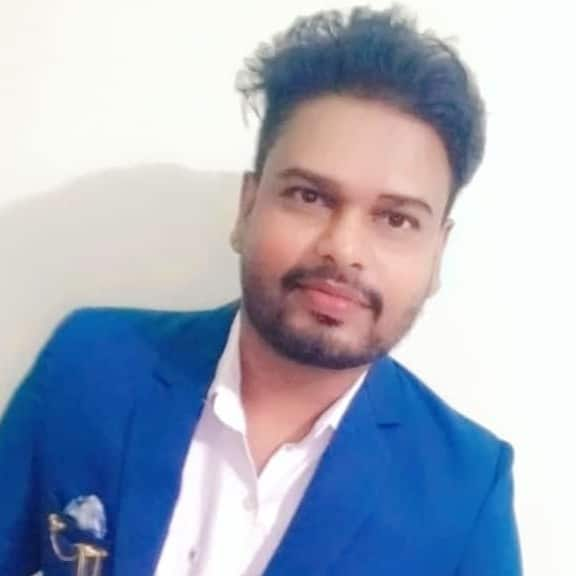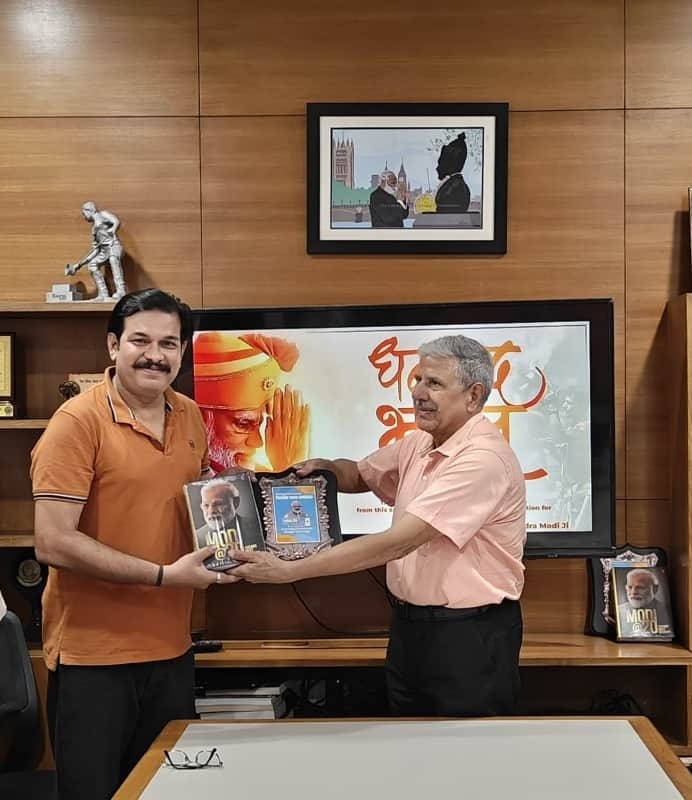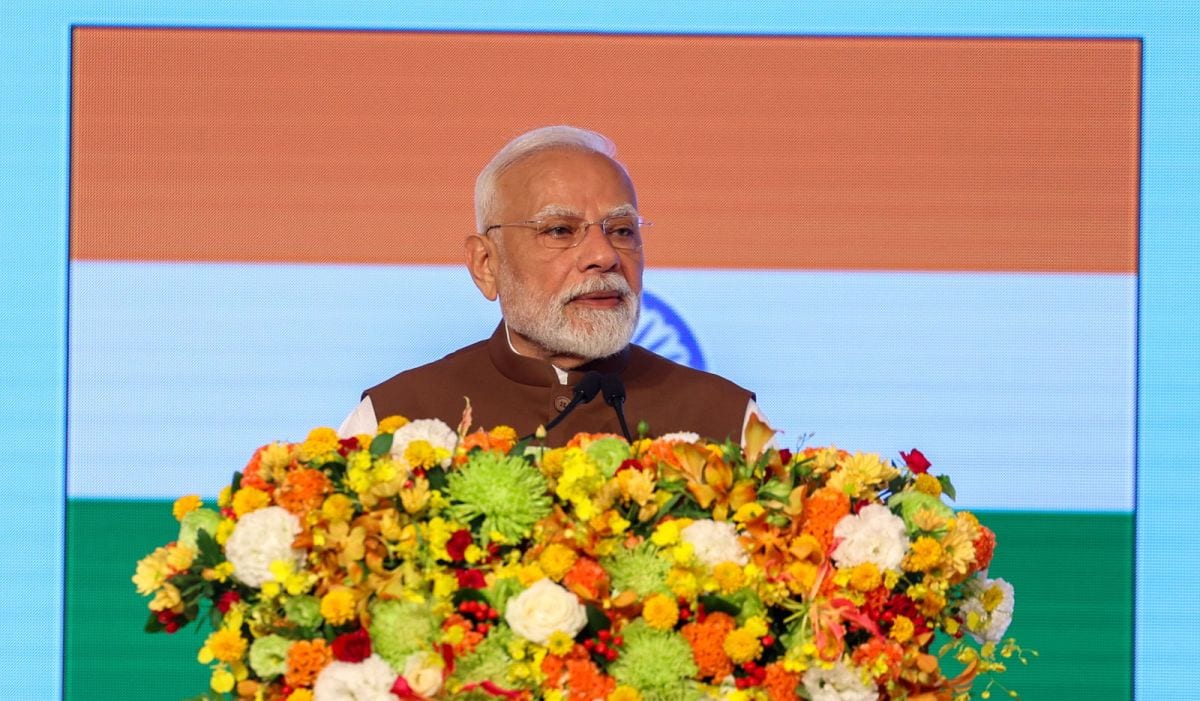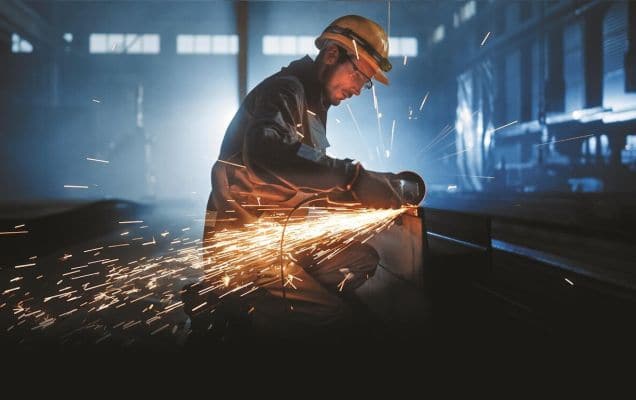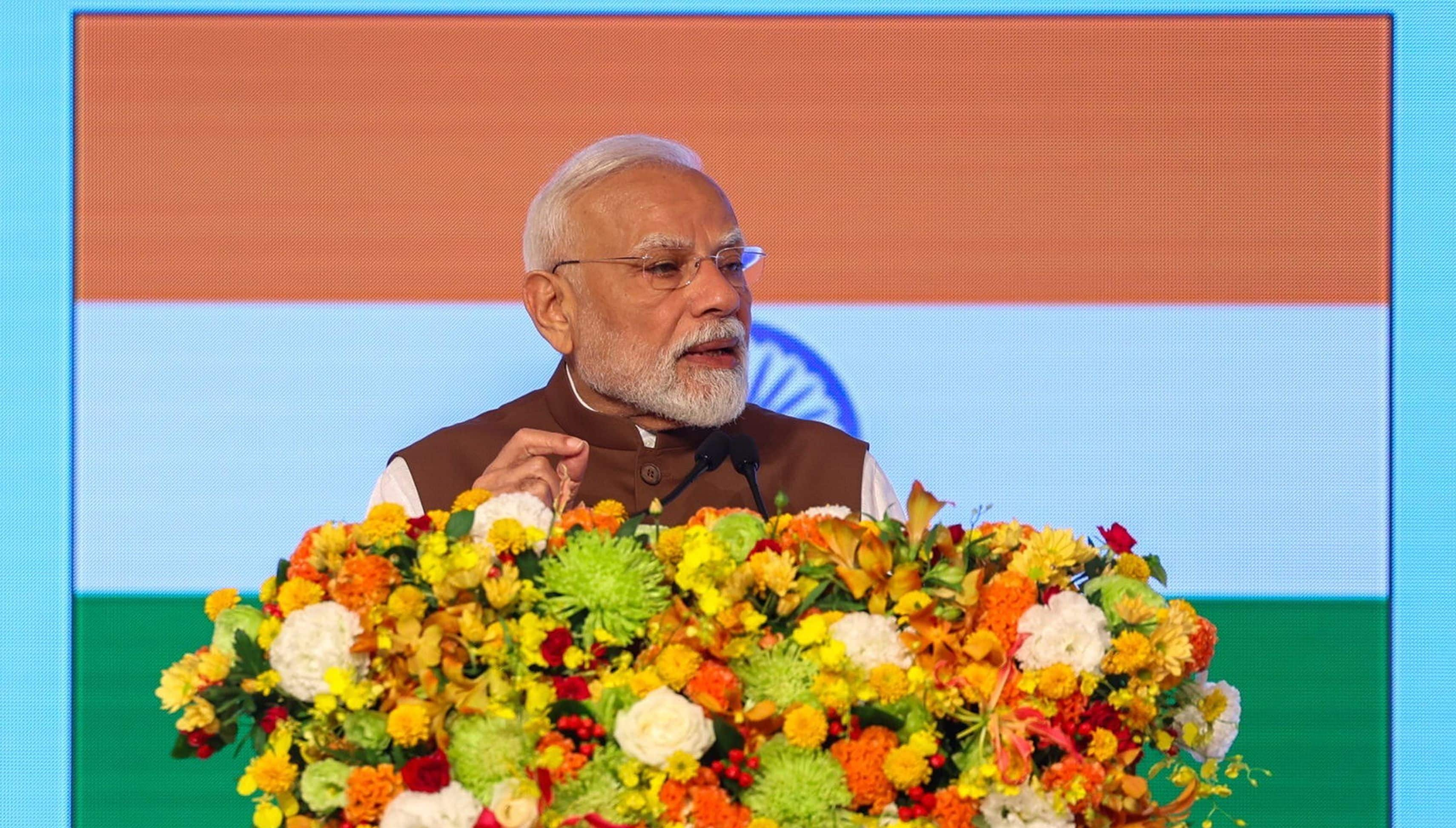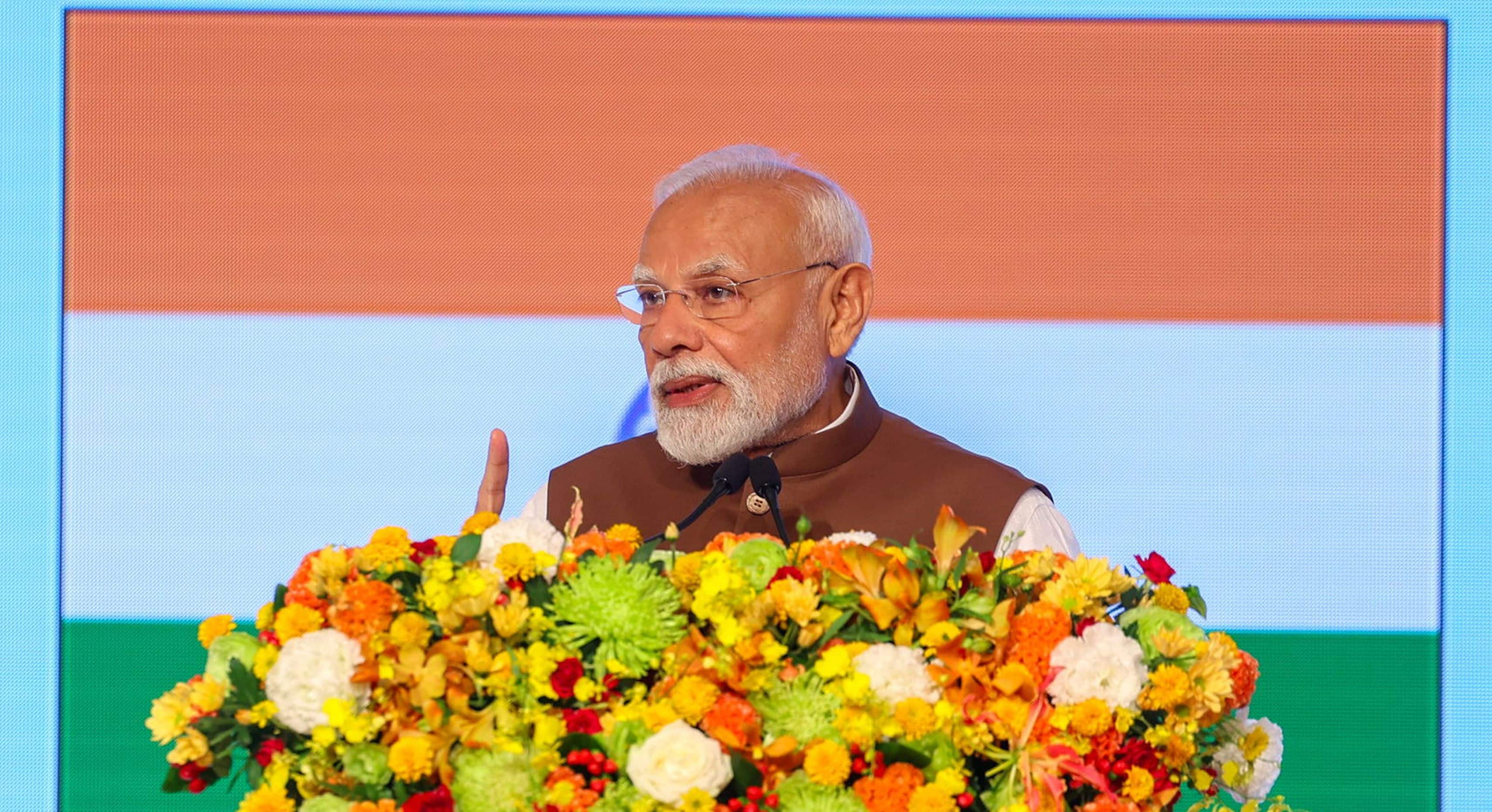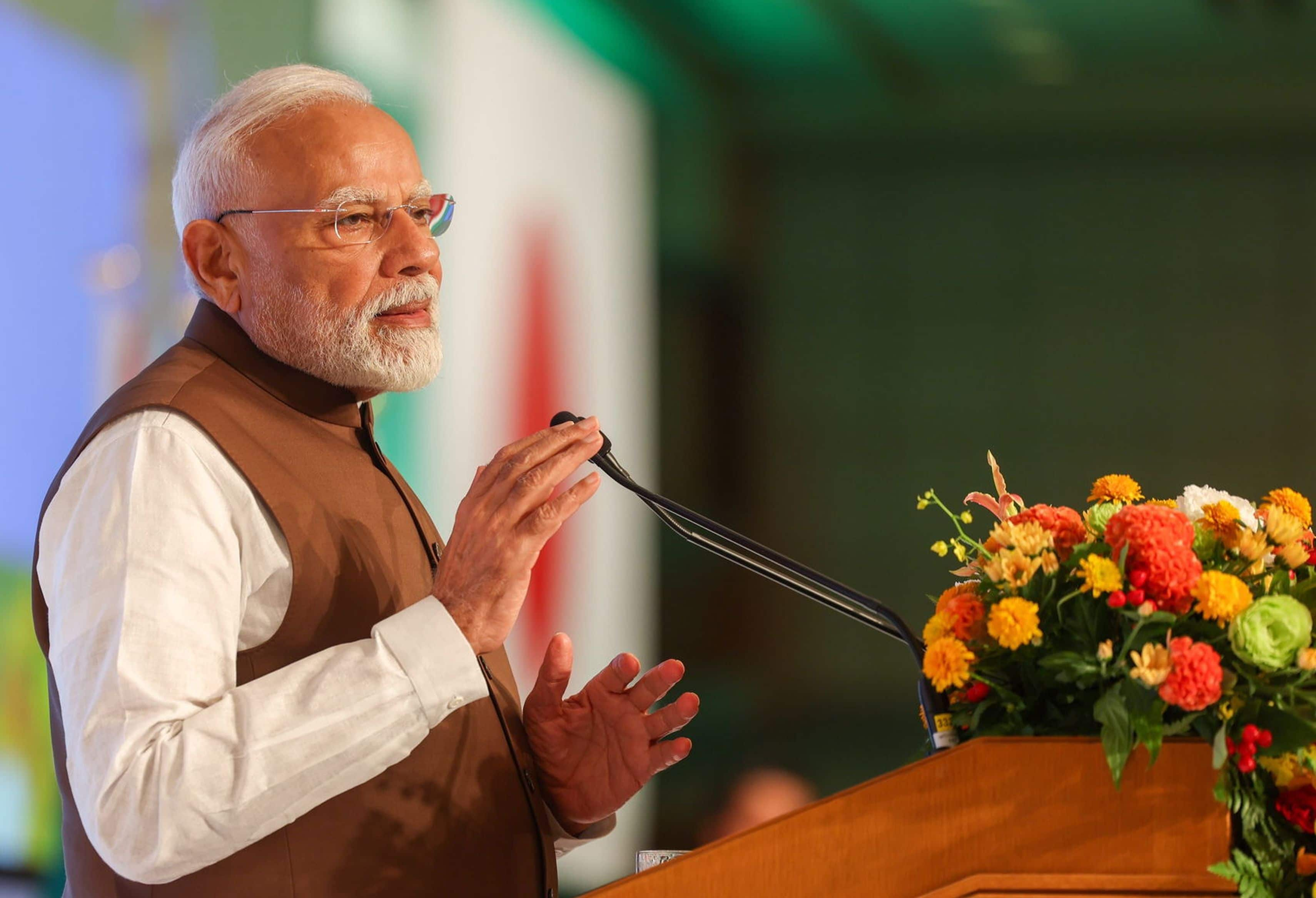Indian Prime Minister Narendra Modi has declared he wants to take the relationship with Australia to the “next level”, including closer defence and security ties to help ensure an “open and free” Indo-Pacific.
Mr Modi, who arrived in Sydney for his first bilateral visit in almost 10 years on Monday night, said the growing strategic challenges in the region made India’s partnership with Australia more critical than ever.
“I am not a person who gets satisfied easily,” Mr Modi told The Australian in an exclusive interview before his arrival.
“I have seen that Prime Minister Albanese is the same. I am confident that when we are together again in Sydney, we will get the opportunity to explore how we can take our relations to the next level. Identify new areas of complementariness and can expand our co-operation.”
Mr Modi, who last visited Australia in 2014, called Mr Albanese, who visited India in March, a “dear friend”.
He said the bilateral relationship was being nourished by the fast-growing Indian diaspora, which served as a “living bridge” between the two nations, bound in part by a shared passion for cricket.
He said that since his last visit the bilateral relationship has been “fundamentally transformed” by annual summits, an Economic Cooperation and Trade Agreement, and the elevation of relations to a Comprehensive Strategic partnership.
“We have progressed significantly in the areas of defence, security, investment, education, water, climate change and renewable energy, sports, science, health, culture, among others” Mr Modi said.
“Our people-to-people contacts remain a strong pillar of our partnership. The Indian diaspora in Australia has increased over the past years. They are a living bridge. Even the game of cricket binds us, on and off the field.”
Mr Modi, alongside Mr Albanese, will address an expected crowd of 20,000 at Sydney Olympic Park on Tuesday night with many Indian Australians catching “Modi Express” buses from around the country to attend.
But Mr Modi, a Hindu nationalist, is also expected to attract protests from some members of the Indian Australian community opposed to his policies at home.
Mr Modi, who met Mr Albanese on the sidelines of the G7 summit in Hiroshima at the weekend, chose to continue with his bilateral visit to Australia despite the collapse of this week’s Quad Leader’s Summit in Sydney after US President Joe Biden pulled out.
Mr Modi instead joined a makeshift mini-Quad summit in Hiroshima with Mr Albanese, Mr Biden and Japanese Prime Minister Fumio Kishida.
The Indian leader flew into Sydney on Monday from a summit in Papua New Guinea, where Prime Minister James Marape hailed Mr Modi as “the leader of the Global South” and a “big third voice for the small island nations” as China and the US compete for influence in the region.
The 72-year-old, who has been prime minister since 2014, said the Indo-Pacific faced strategic and other challenges, but he did not mention China.
India, and other members of the Quad, have this week played down the strategic challenges posed by China to avoid antagonising Beijing, which sees the grouping as a threat.
“The Indo-Pacific faces a number of challenges such as climate change, natural disasters, terrorism, security of the sea lanes of communication, piracy, illegal fishing among others,” Mr Modi said.
“India believes that these challenges can be addressed only through shared efforts.”
Mr Modi said he wanted India and Australia to push to realise the “true potential” of closer defence and security ties.
Australia has increased defence links with India in recent years, including joining the MALABAR joint naval exercises alongside India, the US and Japan.
As two democracies, India and Australia have shared interests in a free, open and inclusive Indo-Pacific. There is alignment of our strategic viewpoints,” Mr Modi said.
“The high degree of mutual trust between us has naturally translated into greater co-operation on defence and security matters. Our navies are participating in joint naval exercises. I am confident that there is merit in working together to realise the true potential in closer defence and security co-operation.”
He did not take a position on Australia’s decision to acquire nuclear-powered submarines under the AUKUS pact.
“This is entirely Australia‘s decision. They have briefed us about their assessment and the thinking behind their decision,” Mr Modi said.
He also denied that bilateral relations would be harmed by India’s refusal to criticise Russia – a major supplier of military equipment to India – over its invasion of Ukraine.
By contrast, Australia has been highly critical of Moscow and has supplied military equipment to Ukraine.
“An advantage of being good friends is that we can discuss freely and appreciate each other’s viewpoint. Australia understands India’s position and it does not impact our bilateral relationship” Mr Modi said.
During his two day official visit Mr Modi will meet Mr Albanese as well as business leaders and members of India’s 750,000 strong diaspora.
He said he hoped the visit would allow both countries to identify new areas of co-operation “be it new technology, clean energy, critical minerals, mining, cyber space, building resilient supply chains, movement of skilled professionals”.
Before arriving in Sydney, Mr Modi visited Papua New Guinea, where he met Pacific leaders as part of a push to foster closer ties to the region.
“We believe that there is great scope to work with Australia and other like-minded partners in assisting these countries in meeting the challenges they face,” he said. “We remain committed, individually and collectively, to work on the challenges of maritime security, humanitarian assistance and disaster relief.”
India will host the G20 forum this year, which Mr Modi said would bring “the voice of the Global South to the forum, who are the most affected by the decisions we take”.






